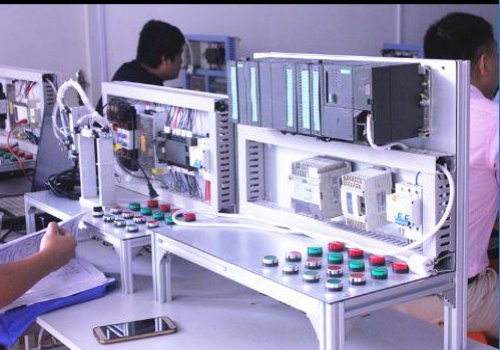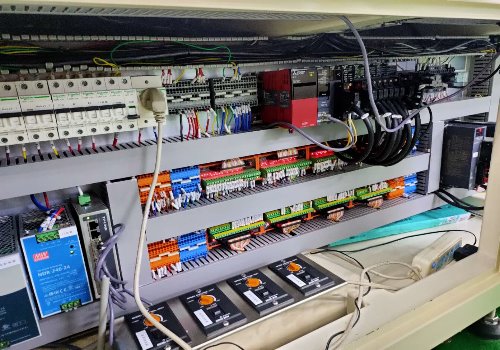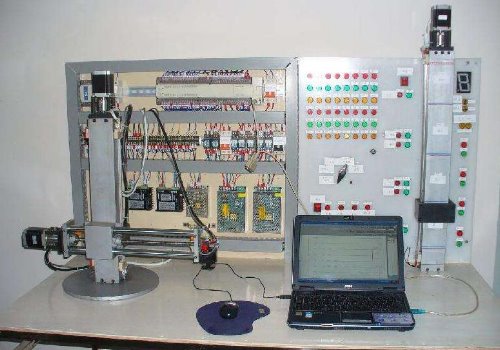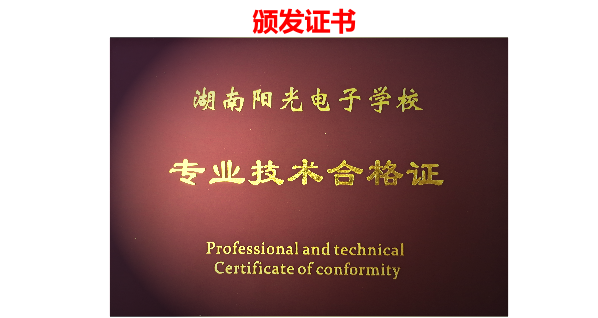2011��Ӣ���Ѿ�������PLC��ѵѧУ����PLC��ѵ���ʱ�䷢��2011��PLC��ѵ��
2011���PLC��ѵѧУ,Ӣ��PLC��ѵ�ࣨ���ܣ�
����������(��15С�⣬�ڽ�ÿС��1PLC��ѵѧУ,���ڡ���ÿС��2PLC��ѵѧУ,����25PLC��ѵѧУ,)
�����ڽڣ���С�Ի���ѡ��ͼƬ��
����1. What' s the girl looking for?
����2. What are the children doing?
����3. What can the boy see in the box?
����4. Which is Paul's favourite season?
����5. How many cars are there in the picture?
�����ڽڣ���С�Ի����ش�PLC��ѵѧУ,��
����6. What would the man like for breakfast?
����A. Rice. B. Bread. C. Cakes.
����7. Whose coat is this?
����A. Kate's. B. Li Lei's. C. Jim's.
����8. How will they go there?
����A. By bike. B. By bus. C. On foot.
����9. Where are they?
����A. In a bookshop. B. In a museum. C. At a library.
����10. How often does Tom write to his penfriend?
����A. Once a year. B. Once a month. C. Once a week.
�����ڽڣ������Ի����ش�PLC��ѵѧУ,��
����������νϳ��ĶԻ����ش��11��12��С�⡣
����11. What are they going to do?
����A. To play volleyball. B. To have a swim. C. To have a walk.
����1 2. When are they going to meet?
����A. At 10:30. B. At 10:00. C. At 9:30.
����������νϳ��ĶԻ����ش��13��15С�⡣
����13. How long has the man been ill?
����A. One day. B. Two days. C. Three days.
����14. What's the man's trouble?
����A. He can't fall asleep at night.
����B. He doesn't get enough exercise.
����C. He coughs much at night.
����15. What did the doctor tell the man to do?
����A. To visit the doctor often.
����B. To go to bed at the same time.
����C. To drink more tea at night.
�������������(����5С�⣬��15PLC��ѵѧУ,)
����16. My mother is English teacher in No. 2 Middle School.
����A. a B. the C. an D, /
����17. We couldn't finish our work so early your help.
����A. without B. with C. for D. by
����18. �� Would you like some .
������ Oh, yes, just a little.
����A. milk B. apple C. pears D. oranges
����19. �� What's your name, please?
������ Robert Thomas Brown. You can call me Robert.
����A. family B. given C. first D. full
����20. �� You come from England, don't you?
������ . How do you know that?
����A. No, I do B. No, I don't C. Yes, lam D. Yes, I do
����21. �� It's so cold today.
������ Yes, it's colder than it was yesterday.
����A. some B. more C. very D. much
����22. �� Must we clean the classroom now?
������ No, you needn't. It after school.
����A. may clean B. must clean C. need be cleaned D. can be cleaned
����23. �� ?
������ The one behind the tree.
����A. Whose girl B. Who's that girl C. Which girl D. Where's the girl
2011��Ӣ��PLC��ѵ��PLC��ѵѧУ,���ο�PLC��֤��ѵ
[NextPage]
����24. �� How long may I your bike?
������ For a week. But you mustn't it to others.
����A. borrow, lend B. keep, lend C. lend, borrow D. keep, borrow
����25. �� Have you ever been to Canada?
������ Yes, I there last year with my parents.
����A. have been B. have gone C. went D. go
����26. �� Do you know ?
������ Sorry, I don't have a watch.
����A. whose watch this is B. whose watch is this
����C. what time it is D. what time is it
����27. �� are the apples?
������ Four yuan a kilo.
����A. How many B. How much C. How heavy D. How expensive
����28. �� Thank you for your help.
����A. That's all right B. No, thanks C. That's right D. Of course
����29. �� Will you please take a message for the headteacher?
����A. It doesn't matter B. Sure. I'll be glad to
����C. Yes, I'll take D. I can help you
����30. �� Maths is as interesting as English, I think.
������ . English is more interesting than maths.
����A. I think so B. I don't think so C. I hope so D. I don't hope so
���������(��15С�⣬��15PLC��ѵѧУ,)
����Jim Green has been in China for more than two years. He has been to many interesting 31 in Beijing, but he has not yet been to many other parts of 32 . Last week he went to Mount Emei in Sichuan with his 33 .
����Many people like to travel by 34 , but the Greens think that travelling by train is the best. It is much 35 and far more enjoyable than a rushed journey by air. They had a won?derful train ride to Chengdu 36 they went on to Mount Emei by bus.
����The train was quite nice and tidy, and there weren't too many people in 37 sleeping car. The Greens could stand up and 38 around. It was a long journey, 39 none of them felt tired. They kept 40 the beautiful things out of the window. They talked, laughed and played cards. The conductor kept coming to give them hot water and 41 them newspapers. People nearby 42 with each other. A young man tried to speak English with Mr and Mrs Green. Jim thought the train was like a big moving party. He went to sleep quite 43 . He enjoyed listening to the sound of the running train and then fell asleep.
����When Jim woke up the next morning, the train was already 44 Chengdu. His train ride seemed really 45 , but his memory (����) of the pleasant journey will last long.
����31. A. schools B. places C. villages D. cities
����32. A. England B. America C. China D. the world
����33. A. friends B. classmates C. father D. family
����34. A. air B. bus C. train D. ship
����35. A. cheaper B. dearer C. dirtier D. quicker
����36. A. before B. when C. after D. while
����37. A. my B. your C. our D. their
����38. A. sit B. walk C. run D. dance
����39. A. and B. so C. also D. but
����40. A. looking B. drawing C. watching D. getting
����41. A. reading B. buying C. selling D. writing
����42. A. talked B. spoke C. told D. said
����43. A. early B. late C. easily D. hard
����44. A. beside B. to C. past D. near
����45. A. quick B. slow C. short D. long
��2011��Ӣ��PLC��ѵ��PLC��ѵѧУ,���ο�PLC��֤��ѵ
[NextPage]
����PLC��ѵѧ�Ѷ���,����(��15С�⣬��30PLC��ѵѧУ,)
����A
����Most people in Britain live in small family groups. More than a quarter of houses in Britain have only got one person in them. Some of these are old people but some are people of twenty to thir?ty who choose to live alone. 35% of houses have two people in them, and another 17% have three people. 15% have four people in them, and the other homes have five or more.
����The families in Britain are small. It is unusual for parents to have more than two children. When children are about eighteen or nineteen, they leave their parents' home, and they often go to a different city. Sometimes they only visit their parents two or three times a year. 46. How many houses in Britain have 3 people living in them?
����A. 8% of houses. B. 15% of houses. C. 17% of houses. D. 35% of houses.
����47. At what age do children in Britain usually leave their parents' home?
����A. About 18 or 19. B. About 20 or 21.
����C. About 25 or 26. D. About 30 or 31.
����48. What do you think the passage is?
����A. An instruction. B. A report. C. A play. D. A joke.
����49. What does the passage mainly tell us?
����A. Young people in Britain. B. Old people in Britain.
����C. Families in Britain. D. The population in Britain.
����50. According to the passage, which of the diagrams is right?
B
����In a surprising result, the No. 69 Middle School girls' football team yesterday beat their school's boys' team. The boys' team often helped the girls with their training (ѵ��). They had never lost to the girls before, but this time the girls beat them 4 �� 3.
����After the game, Wu Nai, head of the boys' team, was very unhappy. "We all thought this would be an easy game," he said. "We never thought a team of girls could beat us. This is the saddest day of my life. "
����But Mr Hu, the boys' PE teacher, said he thought the girls should win. "The boys were too confident (����)," he said. "I told them before the match that they needed to play well. They all thought that girls' football was a joke. Now they know better. They didn't play care?fully, and they lost."
����The match had started well for the boys. After 30 minutes, they were winning 2 - 0. Their best player, Lu Ming, scored in the thirtieth minute. Earlier, the mid-field player, Ma Zhengquan, had scored the first goal in only the second minute of the match.
����After the first half hour, the boys seemed to become too confident. At first, the girls had felt a bit nervous (����), but then they became more and more confident. Just before half time, Li Xiaolin made the score 2 - 1.
����In the second half, the boys were the first to score. It was from Lu Ming. After that the boys became lazy, but the girls kept on working hard. Hao Meiling scored in the 68th minute, to make the score 3 �� 2. Then Li Xiaolin scored twice in the last six minutes to make the last score 4-3. It was a surprising finish.
����The girls' PE teacher, Miss Wang, was very pleased with their work. "They were great!" She said. "I told them they could win. I told them that the most important thing was teamwork. The boys' team had some good players, but my girls were a better team!"
2011��Ӣ��PLC��ѵ��PLC��ѵѧУ,���ο�PLC��֤��ѵ
[NextPage]
����51. Who scored the first goal in the match?
����A. Lu Ming. B. Ma Zhengquan. C. Li Xiaolin. D. Hao Meiling.
����52. How many goals did Li Xiaolin score?
����A. One. B. Two. C. Three. D. Four.
����53. Why could the girls' team beat the boys' in the football match?
����A. Because the boys' team helped the girls with their training.
����B. Because the boys had never lost to the girls before.
����C. Because the boys' team won the first half.
����D. Because the girls played together better and worked harder.
����54. Which of the following is right?
����A. The girls made only one goal in the first half.
����B. The girls even made 3 more goals than the boys in the second half.
����C. Many people thought the girls could beat the boys before the match.
����D. The girls' team had some better players than the boys'.
����55. Choose the right order according to the passage.
����a. The girls' PE teacher told them that they could win.
����b. Wu Nai, head of the boys' team was very unhappy.
����c. The match started well for the boys.
����d. The girls kicked the second goal in the match.
����A. a-b-c-d B. b-c-d-a C. d-c-a-b D. a-c-d-b
C
����Except for a few times, Americans are not big present-givers. There's no exchange of presents among business people, and if one American tries to give another a present, it may look like that he wants to bribe (��¸) him. Americans have learned that in some other countries people like to give presents to others, but among ourselves we don't see the need for presents.
����Even friends may never exchange presents. When I go to foreign countries, I try to bring back little things for close friends, but nobody would feel unhappy if I didn't. I don't often re?member a friend's birthday, and few people outside of my family remember mine. If someone gave me presents too often, I'd get unpleasant. But a present from a foreigner - that kind from his or her homeland �� won't go wrong, except to government employees (����ְԱ) who can't be given presents.
����You usually open a present at once and in front of the person who gives it except Christmas and birthday presents. You should only say, "It's so nice. Thanks��" when you get Christ?mas or birthday presents.
����You may want to bring a bottle of wine (���Ѿ�) or flowers to a dinner party, but you're
����never asked to. Nobody will mind if you bring wine, but your friend may not use it that evening.
����At Christmas we often give presents to our family and sometimes our friends. We also give presents to people who have been helpful during the year- doormen, babysitters, housecleaners, newspaper senders�� anyone who has often helped us.
����56. What does "close friends" mean in the passage?
����A. The friends who are very kind.
����B. The friends who live close to each other.
����C. The friends who were once classmates.
����D. The friends who you like most.
����57. What kind of presents don't Americans usually open in front of the givers?
����A. The small presents. B. Christmas or birthday presents.
����C. The expensive presents. D. The presents for dinner party.
����58. Why do Americans also give presents to housecleaners at Christmas?
����A. To pay them. B. To help them.
����C. To thank them. D. To make them work harder.
����59. Which of the following do you think is right?
����A. American business people don't want presents because they are rich enough.
����B. The writer of this passage must be an American.
����C. Everyone must give presents to one's family and friends at Christmas.
����D. Government employees can get little presents from a foreigner.
����60. What is the main idea of the passage?
����A. Present-giving in the United States.
����B. Customs (��) in the United States.
����C. American people and present-giving.
����D. When and how to give presents.
��2011��Ӣ��PLC��ѵ�༰�ο�PLC��֤��ѵ��word�棩
[NextPage]
������ȫ�Ի�(��5С�⣬��5PLC��ѵѧУ,)
�������ݶԻ����ݣ��ӶԻ����ѡ��PLC��ѵѧУ,ѡ��������հ״������ѡ�ѡ��PLC��ѵѧУ,������Ϊ����ѡ�
����A: Good morning, madam.
����B: 61
����A: Well, I'll try. What's the problem?
����B: 62
����A: I see. Well, we must get it down.
����B: 63
����A; By sending one of our police around to your house.
����B: 64
����A: Oh, I think so.
����B: 65
����A: How will you do that?
����B: Oh, it is 21 Oxford Street.
����C: It's my cat, Jennifer. She went up a tree, and she couldn't get down.
����D: Hello, could you help me?
����E: OK. Thank you.
����F: Will he be able to help?
����G: Good morning, sir.
������ƴд(��10С�⣬��10PLC��ѵѧУ,)
�����������о���PLC��ѵѧУ,�����ĺ���ע�ͣ�д�����ӿ�ȱ�������ʵ���ȷ��ʽ��ÿ���ո�������PLC��ѵѧУ,�
����66. The young man with glasses teaches (����) Chinese.
����67. Will you please pass me a (��) of tea?
����68. Your coat is green, but mine is (��ɫ��).
����69. We had to stay (��) home last Sunday, for it was raining all day.
����70. He (��) his homework late last night.
����71. Both of the two girls look (��) their father.
����72. There are many (��) in Hangzhou.
����73. Who's (��), Lucy or Lily?
����74. They go to (�ϰ�) at eight every day.
����75. Ann had her () birthday in China. She felt very happy.
��������ͼ����(��1С�⣬��20PLC��ѵѧУ,)
�������������ͼ����������Ӣ��дƪ���ġ�����6��9�����ӡ�����Ҫ����⡢��ȷ�����ᡣ
����2011��PLC��ѵѧУ,Ӣ��PLC��ѵѧУ,PLC��֤��ѵ�����ܣ�
����¼������
��������Ӣ���������PLC��ѵѧУ,���ò�PLC��ѵѧУ,PLC��ѵѧУ,�ڡ�
�����ȿ�������PLC��ѵѧУ,�ڽڣ���С�Ի���ѡ��ͼƬ��
����������5��С�Ի���ÿ�ζԻ����и�PLC��ѵѧУ,������PLC��ѵѧУ,�����ķ�ͼ��PLC��ѵѧУ,ѡ�����PLC��֤��ѵ��������PLC��ѵѧУ,����Ӧλ�á�ÿ�ζԻ������顣
����1. W: Where's my pencil, Dad?
����M: Pencil? Oh, it's under the desk.
����2. W: Have you seen the children?
����M: Yes, they are playing basketball in the playground.
����3. W: Can you see any shirts in the box? M: Yes. I can see four.
����4. W: Which season do you like best, Paul? M: Summer. Because I like swimming.
����5. W: How many cars are there in the picture? M: There are two.
��2011��Ӣ��PLC��ѵ��PLC��ѵѧУ,���ο�PLC��֤��ѵ
[NextPage]
���ڽڵ��˽�����
�����ڽڣ���С�Ի����ش�PLC��ѵѧУ,��
����������5��С�Ի���ÿ�ζԻ����и�PLC��ѵѧУ,������PLC��ѵѧУ,�����ĸ�ѡ��PLC��ѵѧУ,ѡ�����PLC��֤��ѵ��ÿ�ζԻ������顣
����6. W: What would you like for breakfast?
����M: I'd like some cakes.
����7. W: Li Lei, is this coat yours?
����M: No, it's not mine. It's Jim's.
����8. W: How shall we go to the park, by bike or by bus? M: By bike. It's not far from here.
����9. W: Can I help you?
����M: Yes, please. I've come to return this book and borrow a new one.
����10. W: Do you often write to your penfriend, Tom?
����M: No, I'm very busy. I write to him once a month.
�ڽڵ��˽�����
�����ڽڣ������Ի����ش�PLC��ѵѧУ,��
����������νϳ��Ի����ش��11�͵�12����С�⡣�öԻ������顣
����W: Hello, 276694.
����M: Hello. Can I speak to Jo, please?
����W: This is Jo speaking.
����M: Oh! Hi, Jo. This is Pat. I'm just ringing to make sure if Sunday is still OK for a walk in the country.
����W; Yeah, that's fine.
����M: Great! See you at 10:00 on Sunday. OK?
����W: Shall we make it half an hour earlier?
����M: 9:30? No problem. Bye!
����W: Bye!
����������νϳ��ĶԻ����ش��13����15��С�⡣�öԻ������顣
����W: Hello, young man. What s wrong with you?
����M: I just can't sleep at night.
����W: How long have you been like this?
����M: Er, two days.
����W: Right, two days. Now open your mouth and say "Ah"!
����M: Aahh. . . And then I'm tired all day at work.
����W: Well, don't worry. Nothing serious. But try to go to bed at the same time every night, and get enough exercise.
����M: OK.
����W: And don't drink too much tea at night. You'll be all right soon.
����M: OK. Well, I'll try that. Thanks a lot.
����W: You re welcome.
2011��Ӣ��PLC��ѵ��PLC��ѵѧУ,���ο�PLC��֤��ѵ
[NextPage]
�����ڽڵ��˽�����
����������PLC��ѵѧУ,���˽�����
����1. A 2. A 3. B 4. A 5. B 6. C 7. C 8. A 9. C 10. B 11. C 12. C 13. B 14. A 15. B 16. C 17. A 18. A 19. D 20. D 21. D 22. D 23. C 24. B 25. C 26. C 27. B 28. A 29. B 30. B 31. B 32. C 33. D 34. A 35. A 36. A 37. D 38. B 39. D 40. C 41. C 42. A 43. B 44. D 45. C 46. C 47. A 48. B 49. C 50. A 51. B 52. C 53. D 54. A 55. D 56. D 57. B 58. C 59. B 60. A 61. D 62. C 63. A 64. F 65. E
����66. us 67. cup/glass 68. red 69. at 70. did
����71. like 72. parks 73. taller 74. work 75. tenth
����New Year's Day is coming. Some students are going to hold a party on New Year's Eve. Now they are busy get?ting ready for it. A boy is carrying some food and a box of drinks into the classroom while others are working hard to make the classroom nice and clean for the party. Look, a girl is making seme paper flowers and a boy is writing "Happy New Year" and drawing some pictures on the blackboard. Over there two students are cleaning the win?dows and desks. I think they will have s wonderful party and enjoy themselves a lot.
����PLC��ѵѧУ,ѧ�ѱ�
�������1��5С�⣬ÿС��1PLC��ѵѧУ,��ѡ��PLC��֤��ѵ(������ѡ��ѡ)�ɲ���PLC��ѵѧУ,��
�������6��15С�⣬ÿС��2PLC��ѵѧУ,��ѡ��PLC��֤��ѵ(������ѡ��ѡ)�ɲ���PLC��ѵѧУ,��
�������16��45С�⣬ÿС��1PLC��ѵѧУ,��ѡ��PLC��֤��ѵ(������ѡ��ѡ)�ɲ���PLC��ѵѧУ,��
�������46��60С�⣬ÿС��2PLC��ѵѧУ,��ѡ��PLC��֤��ѵ(������ѡ��ѡ)�ɲ���PLC��ѵѧУ,��
�������61��65С�⣬ÿС��1PLC��ѵѧУ,��ѡ��PLC��֤��ѵ�ɲ���PLC��ѵѧУ,��
�������66��75С�⣬ÿС��1PLC��ѵѧУ,����ƴд����������ģ������PLC��ѵѧУ,��
�������76С�⣬��ͼ�����20PLC��ѵѧУ,����5�����θ�PLC��ѵѧУ,��
�����ڵ�(17��20PLC��ѵѧУ,)������������������ᣬ���Ի�����
�����ڵ�(13��16PLC��ѵѧУ,)���������������Ļ����ᣬ��������������
�����ڵ�(9��12PLC��ѵѧУ,)���������н϶�������ܴ��⡣
�����ڵ�(5��8PLC��ѵѧУ,)����д����Ҫ�㣻���Դ���࣬Ӱ����˼���
�����ڵ�(0��4PLC��ѵѧУ,)�������IJ����⣬�����ٳ�����֪���ơ�
......
������ز鿴�������ϡ��������㽭��PLC��ѵѧУ,2011��Ӣ��PLC��ѵ�༰PLC��֤��ѵ��word�棩
2021�겻�ϱ仯,sp.hnygpx.net/wz_index.php? PLC��ѵѧУ���ṩ��PLC��ѵѧУ,PLCѧУ��PLC��ѵѧУ�����ο�������������������ŵ�Ϊ��












 ɨ�������
ɨ�������


